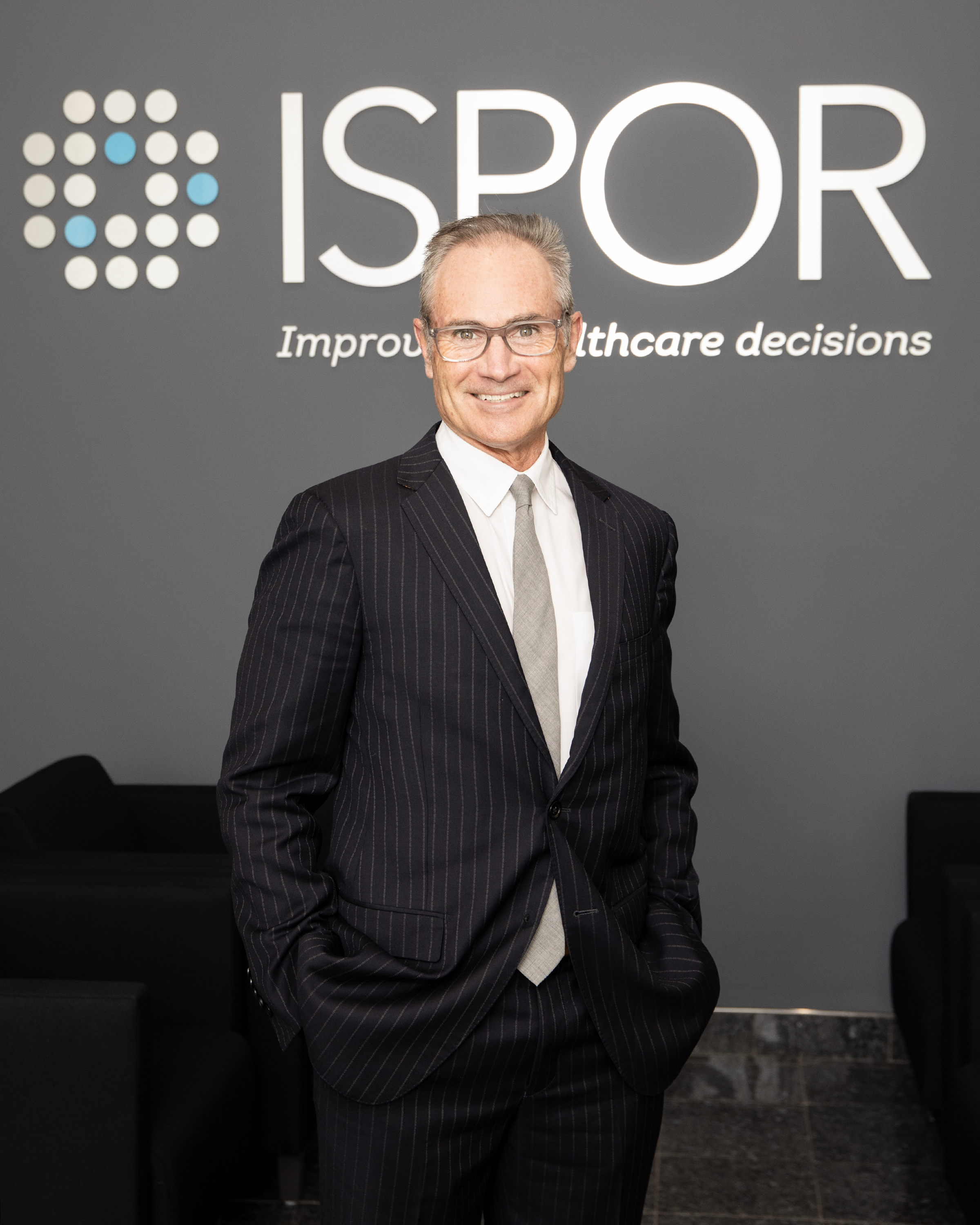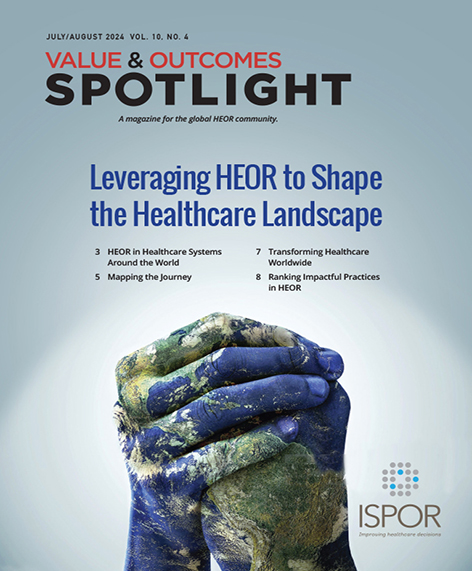Mapping the Journey: Achieving Health System Sustainability
Rob Abbott, CEO & Executive Director, ISPOR

To suggest that healthcare is at an inflection point is to perfect the art of understatement. Across the world, health systems—the combination of people, institutions, resources, and activities whose purpose is to promote, restore, and maintain health—are struggling to deliver the best that medical science has to offer at a reasonable cost. Whether it’s labor shortages within the healthcare sector, increasing complexity, rising numbers of patients with multiple chronic diseases amid population aging, or the onset of effective but expensive therapies (GLP1s and high-cost infusion drugs come quickly to mind), the long-term financial sustainability of health systems can no longer be taken for granted. It follows that the tremendous gains in health that have been achieved over the past 2 centuries can no longer be expected to continue unabated.i
"Across the world, health systems—the combination of people, institutions, resources, and activities whose purpose is to promote, restore, and maintain health—are struggling to deliver the best that medical science has to offer at a reasonable cost."
Within the United States, the much-discussed Medicare drug price negotiations, overseen by the Centers for Medicare & Medicaid Services, have overshadowed several other interesting and important developments on the healthcare landscape. These include retail giants Kroger and Wal-Mart increasing their health footprint. The former has transitioned in-store clinics to value-based primary care centers, while Wal-Mart has expanded its network of health centers and entered into a partnership with Orlando Health to make it easier for Orlando area residents and their providers to coordinate a patient’s healthcare journey. Meantime, Amazon has acquired One Medical to build out its health portfolio to include selling healthcare services to employers; CVS has broadened its value-based primary care platform by acquiring Oak Street Health; and Costco has teamed up with Sesame to offer discount pricing on outpatient medical care.
If there is a unifying theme to these US-based developments, beyond nontraditional players increasing their positions in healthcare, it is a desire to make care more accessible and affordable to more people.
Against this backdrop, I’m both proud and excited about ISPOR’s new 2030 strategy, which is anchored by a new vision: A world where healthcare is accessible, effective, efficient, and affordable for all. As a professional society we want to leverage health economics and outcomes research (HEOR) evidence to help ensure that people have access to the care they need, when they need it, at a cost they can afford. This is not an easy lift. As the articles in this themed issue of Value and Outcomes Spotlight make clear, health systems across the globe are undergoing a period of unprecedented transformation, driven by technological advancements, demographic shifts, and rapidly evolving patient needs.
It should also be noted that our very conception of health is changing. Historically, it was approached largely in a physical context, but we know its meaning is much broader. And so it is that “social determinants of health” and “whole health” have rightly surfaced in the culture as better markers of what we are striving for when we speak of improving health and health systems. In this regard it is helpful to remember that the 1946 Constitution of the World Health Organization defined health as “a state of complete physical, mental, and social well-being.” Again, I am pleased to see that the articles in this issue recognize the importance of improving all 3 of these component parts, as well as increased investments in prevention and the maintenance of good health. In this way, there is a tacit acknowledgement that good health is fundamental for a high quality of life, as it influences our ability to truly enjoy life and participate in a wide range of daily activities. I would add that a core feature of ISPOR’s 2030 strategy is broadening the definition of “value” in health decision making to include many of the defining features of whole health.
"As a professional society we want to leverage health economics and outcomes research evidence to help ensure that people have access to the care they need, when they need it, at a cost they can afford"
Another dimension of health systems across the world that I want to call out here is the need to ensure that people have access to essential medicines. This is fundamental and yet, as research from the United Nations shows,ii in many low- and middle-income countries the availability of medicines is much lower than in wealthier countries. This is a critical health equity issue and one that I personally take very seriously. As a global community we need to eliminate disparities in health systems and healthcare access. I’m therefore pleased to signal that a new ISPOR Special Interest Group is specifically examining how to accelerate access to novel medicines in these poorer countries.
In summary, I want to stress that despite the challenges facing global health, some of which I mention above, I’m optimistic. In fact, I consider it a great privilege to be alive at this time and to have the opportunity to lead an organization that is squarely dedicated to finding solutions to these challenges. We know that smart healthcare investments can improve health outcomes and that HEOR can inform those investments. We also know that health system change can happen quickly. In contrast to pioneering countries like France, Austria, and Germany—each of which expanded health system development and healthcare coverage between 1920 and 1960—China and Vietnam developed their healthcare systems in the 21st century and achieved significant progress in less than a decade. This demonstrates that real change is possible. ISPOR stands ready to leverage its global network to carry the momentum forward.
i For context, in the year 1800 no country in the world had a life expectancy at birth of more than 40 years. Today several European countries and Japan boast life expectancies that are double that. Many low- and middle-income countries have also seen considerable progress, but gaps remain, with life expectancies in some Sub-Saharan African countries below 60 years.
ii United Nations. Delivering on the Global Partnership for Achieving the Millennium Development Goals. MDG Gap Task Force Report 2008. Published August 2008. http://www.un.org/en/development/desa/policy/mdg_gap/mdg_gap_archive/mdg8report2008_enw.pdf

